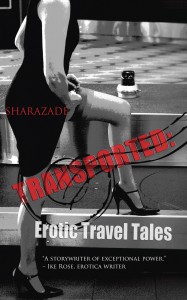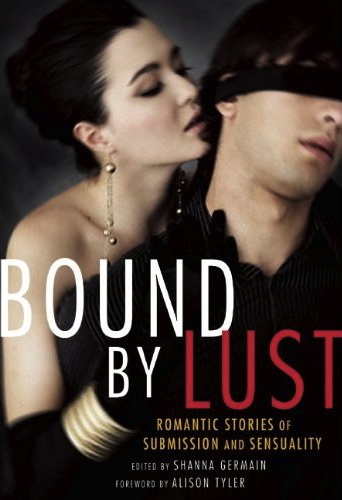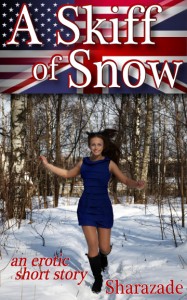So I was interviewed recently by Guy Raz for NPR’s weekend edition of All Things Considered. Which was pretty exciting for me — I mean, I listen to that program all the time, and here I was actually going to be on it. It’s as exciting as describing the funny sound your engine makes on “Car Talk,” or being a contestant on “Wait, Wait, Don’t Tell Me!” The program segment was a follow-up to the two articles Fast Company ran on Amazon, erotica, and piracy, here and here; I wrote my version of the events here.
First, a staff member from NPR contacted me by email and we had a few exchanges; then she called me and we talked for about half an hour (probably to establish that I wasn’t a nutter). I checked out OK, so she said that they’d have me go down to the local recording studio for my area’s NPR station, and I’d be interviewed and recorded. She said Guy would ask essentially the same questions she did.
Now, an interview is easy, right? Someone asks you questions, and you answer them. And if you know the topic in advance, and you’ve even already more or less walked through it on the phone with someone, there’s nothing you need to prepare. You just show up.
And so I did. And … well, he asked me a question I hadn’t expected.
He asked, “What are your books about?”
I know! I know! Of all the possible questions you could ask an author, surely that one would be the most likely one of all. It ought to be the question I expect the most, not one that catches me by surprise. I can’t explain my surprise rationally, I can only tell you that I felt it.
Fortunately, I did not say the first thing that popped into my head, which was, “Oh, they’re about ten pages.” Unfortunately, though, I did say the second thing that popped into my head, which was, “They’re about sex.”
Now, our interview lasted about 20 minutes, and he did follow up that question by asking me to relate the plot to one of my stories, which I did… but the total time for the segment was under ten minutes, and there were other people to be interviewed as well, so I knew that a lot of that would be cut.
Not, of course, the quip of my books being about sex.
*wince*
Because the thing is… they’re not about sex. Sex is the vehicle, the conveyance, yes; but my stories are about desire, or attachment, or doubt, or adventure, or growth, or any of the many things that other novels and short stories are about. I almost always have a core idea that I wish to explore: Is it wrong to need reassurance of one’s attractiveness? What role do observers play in defining a couple? How does being covered (physically and metaphorically) affect your view of yourself? What circumstances drive us to ask directly for what we want? and so on.
Readers don’t always pick up on whatever issue it is that I think I’m exploring, I’ve noticed — and that’s perfectly OK. The “message,” if there is one, is really for me. But I never sit down to write thinking, “I know! I’ll describe two people fucking!”
I have no idea why I didn’t say that on the air. But I do think it’s a good question, and it’s one that every author should be prepared to be asked, I think; and it’s worth answering for yourself, whether anyone else puts it to you or not.
For those who wish to hear my embarrassing answer on the air, the link is here.
For my fellow writers, I offer the chance to answer the same question here: What are your stories about? How important is it to you that your message be apparent? Do you always know your “about” before you begin, or do you ever look back at a finished story and discover it then?
* * * * *






